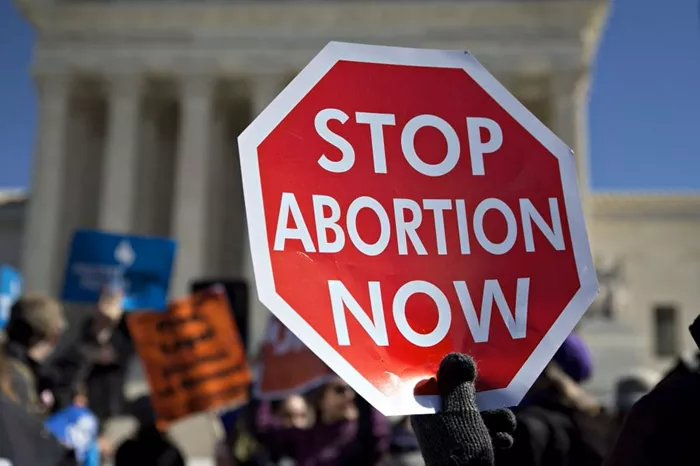ATLANTA – Jaylee Morrison was shocked when her boss at a pizza restaurant fired her via text message. The text read, “I didn’t know u were lactating,” adding that they couldn’t provide breaks every 25 minutes for pumping. Morrison, who gave birth to her son Asher eight months earlier, had only requested a brief five- to ten-minute break to pump.
“I couldn’t believe this was happening,” the 21-year-old from Paulding County told the FOX 5 I-Team.
Morrison initially believed she had a strong case for a lawsuit. After hiring an attorney and filing a federal discrimination complaint, she was disheartened to discover that Georgia lacks specific laws against pregnancy discrimination. Although federal law prohibits such discrimination, the protections under Title VII of the Civil Rights Act do not cover her situation. “Georgia has no laws that protect employees,” said Amanda Farahany, an Atlanta labor attorney who reviewed Morrison’s case. “In particular, there are no laws to protect pregnant employees. The federal law only applies to companies with 15 or more employees.”
Amid Georgia’s recently reinstated six-week abortion ban—originally overturned by a Fulton County judge—some lawmakers and women’s rights advocates argue that the state must improve protections for working mothers. “If you’re going to require women to have kids, then you should at least let them work,” Farahany stated.
A Gap in Legal Protections
Georgia is one of only three states, along with Mississippi and Alabama, that have no laws safeguarding pregnant workers. Farahany is actively trying to change this. Earlier this year, she helped draft the Pregnancy Protection Act, which would allow women to sue for pregnancy discrimination at businesses with as few as 10 employees. State Senator Brian Strickland, chair of the Senate Judicial Committee, introduced the bill.
“I’m proud to say I’m pro-life,” Strickland, a Republican from McDonough, said during a February hearing on the bill. “But it’s beyond just protecting the baby. It also includes protecting the mother.”
Despite bipartisan support, the bill did not advance to a vote in the Senate or House and ultimately died at the end of the legislative session. Strickland noted that some lawmakers were hesitant to impose new regulations on businesses and wanted to assess how recent federal protections for pregnant women would unfold.
However, the Pregnant Workers Fairness Act, enacted last year, only applies to businesses with 15 or more employees. Similarly, the PUMP for Nursing Mothers Act also took effect last year, but it falls under the federal Fair Labor Standards Act. This means that businesses can claim an undue hardship if they have only one waitress on duty.
Strickland plans to reintroduce the Pregnancy Protection Act in the next legislative session and will hold a hearing next month in a committee he leads focused on childcare affordability. “If we’re going to choose life as a state, we need to offer full support,” Strickland told the I-Team.
Losing a Job After One Shift
If the bill resurfaces, Farahany might ask Morrison to share her story at the state Capitol next year about the loss of her waitressing job. Morrison explained that she had only completed one shift at the pizza restaurant, marking her return to work since giving birth. In the dismissal texts, her boss also mentioned her time-off requests for family issues, stating, “I think it’s best we just see this as a sign and part ways sorry.”
“I felt angry, stressed, and anxious,” Morrison recalled. “Now I have to scramble to find another job because I need the money.”
She filed a complaint with the U.S. Equal Employment Opportunity Commission (EEOC) as a required step for a discrimination claim. However, the process halted when an EEOC investigator informed her attorney that Morrison’s former boss had provided documentation indicating they did not meet the employee threshold for the Commission to take action. “I think they had around ten to twelve employees,” Morrison said.
Her ex-boss declined to comment but stated in an email, “We deny any allegations that we have violated any law or acted in any way detrimental to this former employee. We are in compliance with all applicable laws and wish her all the best for her future.”
Farahany criticized the situation, saying, “Of course that employer has done something wrong. But they won’t be held responsible because they have too few employees to be covered by federal law.” She expressed disbelief that Georgia lacks laws protecting new mothers in the workplace.
A Path Forward
If passed, the Pregnancy Protection Act would allow women to sue in state and superior courts instead of relying solely on federal courts. Georgia’s federal judges have a reputation for dismissing many discrimination cases before they reach a jury.
Farahany believes moving cases to local courts would benefit even those working for larger companies. One of her clients, Amie Loudermilk, 24, has filed a federal complaint against RaceTrac, accusing the Atlanta-based company of terminating her paychecks after she informed a manager at a Cherokee County gas station of her pregnancy and requested a lighter workload.
“From the day I told them I was pregnant, everything changed,” Loudermilk said.
RaceTrac has denied her allegations in court documents and did not comment further on the pending litigation. “While we cannot comment on pending litigation, RaceTrac takes such claims seriously and is committed to addressing them,” the company stated. “We pride ourselves on being a values-driven employer that fosters a supportive and inclusive workplace for all employees.”
You Might Be Interested In


